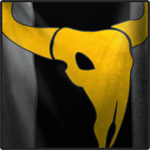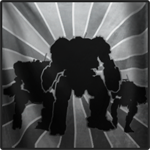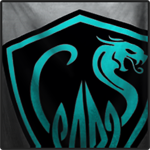In this blog we discuss some of the details about Information Warfare and what it means to MechWarrior® Online™. As always we're revealing details that are beta ready.
Contributors include Bryan Ekman, Paul Inouye, and David Bradley.
Overview
At its heart, Information Warfare is about controlling the flow of information on the battlefield.
- Knowing where your enemy is.
- Knowing the current status of your enemy.
- Understanding your enemy’s intentions.
- Sharing information between units.
The core of information warfare is the BattleGrid, a combination of command center and dynamic battlefield map useable by players during gameplay. The BattleGrid is an extension of the HUD and allows players to quickly review the tactical situation at hand. Players will immediately recognize elements from other successful shooters and previous MechWarrior® products.
- A scalable battlefield top-down map.
- Object and waypoint markers.
- Friendly and Enemy Unit Markers
- Support Units
- Orders
In order to evolve the concept of MechWarrior®, we needed a new layer of customization. After several scrapped ideas, we settled on a module concept. Modules allow players to customize their BattleMech with functionality without having to deal with the existing slots and tonnage rules.
Each BattleMech will come with a Module Board. Players can insert modules of their choice, provided they have space. Each module adds a layer of functionality. Modules are linked to the Pilot Tree and are unlocked by training various skills.
Modules are also a very important part of Role Warfare - a topic for a future blog.
Targeting Tweaks
We’ve changed how targeting has worked by layering and controlling what players see and know about the opposing force elements.
Target information is now exclusively Line of Sight/Detection (LOSD). Simply put, if you, a teammate or support unit can’t directly see or detect a target using a module, that target is invisible. Target information decays rapidly. This means if you lose LOSD, you will lose all knowledge that target’s position and current status.
Details about a target are not inclusive, and is now layered based on the type of modules and BattleMech you are piloting. The concept helps emphasizes using specific `Mech and Module combinations to gain and share enhanced targeting information.
Sharing of target information is also no longer inclusive and requires a Module or C3 Master/Slave unit.
Detection
So how do you gather LOSD information? Well there are several ways.
- Direct – You can see the target directly (LOSD).
- Radar – Your radar can detect a target in a predetermined arc, also LOSD.
- Satellite Scan – Orbital scan of the battlefield, highly efficient however still limited to top-down LOSD.
- UAV – Similar to a Sat Scan, but localized to a specific area on the battlefield.
- Detectors – Dropped off on the battlefield.
- Units – Any non-BattleMech present on the battlefield.
Each type of detection device may also have different primary or secondary modes of detection as follows:
- Night Vision – Allows players to see more detail in low light situations.
- Thermal Vision – Allows players to see heat signatures that can be detected through obstacles.
- Magnetometer Assisted – Allows players to detect metal and metal densities which can uncover a BattleMech hiding behind a building.
Disruption/Spoofing
With such an emphasis on detection and tracking, we also needed a counter balance, something that players could equip. Using the module system, we allow players to equip Electronic Counter Measures (ECM) devices in the form of:
- Spoofers – Beacons that send out a false target signatures.
- Disruptors – Disrupt or block modes, communication, target acquisition and locks.
- Surveillance – Allows a player to intercept and decode enemy intel.






























